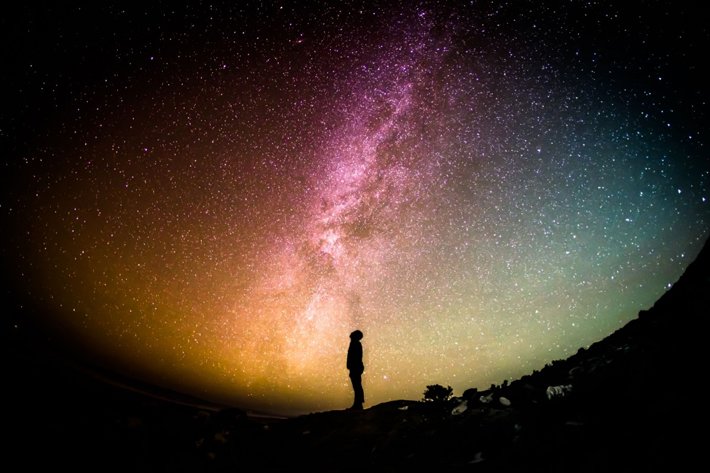Lecturer and author, Yuval Noah Harari, has a unique take on life. Humanity’s greatest invention, he believes, was not the wheel nor the printing press nor even the harnessing of the atom—but rather religion. Religion is what distinguishes us from all other animals and puts us a step or more above them.

The ability to communicate about things you can neither see nor touch but can only conceive as concepts or ideas is uniquely and exclusively human. “All other animals use their communication system to describe reality,” Harari says. “We use our communication system to create new realities.”
A dog pricks up his ears at a strange noise. A rabbit stamps its foot to signal danger. But only a human can discuss the works of Marcel Proust or the political future of Europe or whether the Dodgers will go all the way next year. Religion—no matter your preferred definition—has been around as long as the question, “Why?” and not nearly as long as the questions, “What?” or “Where?” or “When?” That makes religion a newcomer in the world. How new?
If you were to take the history of Earth from its inception to the instant you’re reading this, and shrank it down to a 24-hour day, man would appear in the final moments of that day—11:58 p.m., to be exact. Just two minutes before midnight. So, in the whole grand scheme of things, religion—our most cherished possession, our greatest invention, and the one thing that sets us above all other life forms—has really only been around a couple of minutes.
Possibly we’re still getting used to it, still breaking it in like a new pair of shoes; and possibly that’s why in our too-brief history, religion has sometimes had a rough time of it. Minority religions, newer religions, religions that are too “different” from the mainstream religion of a nation get mistreated by majorities, their people excluded and discriminated against; and sometimes even tortured and killed.
Religion represents an evolutionary step for homo sapiens that cannot conclusively be attributed to a genetic mutation or an adaptive fluke in response to an environmental threat. It is, more likely, an artificial step—manmade—in humankind’s development, likely the first such development in history. And, assuming that—and to be sure, that is quite the assumption—can another artificial evolutionary step be far behind? Possibly it’s already here. Possibly it’s simply tolerance and cooperation—we’ve already demonstrated a degree of willingness and ability in both of those subjects. The former has allowed us to live together in the millions and the tens of millions, often in peace; and the latter has enabled us to harness the energies of wind, water, lightning and sun. With whatever mutation of the soul it takes, when that does happen, when we can both tolerate and cooperate—all of us, all the time—we will have overthrown bigotry, greed and hate, and will have truly conquered the stars.
From its beginnings, the Church of Scientology has recognized that freedom of religion is a fundamental human right. In a world where conflicts are often traceable to intolerance of others’ religious beliefs and practices, the Church has, for more than 50 years, made the preservation of religious liberty an overriding concern.
The Church publishes this blog to help create a better understanding of the freedom of religion and belief and provide news on religious freedom and issues affecting this freedom around the world.
The Founder of the Scientology religion is L. Ron Hubbard and Mr. David Miscavige is the religion’s ecclesiastical leader.
For more information visit the Scientology website or Scientology Network.


